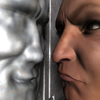Dialogs and Event Handlers
 Sighman
Posts: 56
Sighman
Posts: 56
I hope this is a simple question to answer...
I have created a dialog but I want to be able to respond to events such as clicking on buttons, etc. I see that there is an IMFResponder interface but I'm not sure if I need to implement it or inherit from something. I'm also not sure how to wire up the event handler.
TMCCountedPtr dialog;
gPartUtilities->CreatePartByResource(&dialog;, kMFDialogResourceType, 128);
ThrowIfNil(dialog);
TMCCountedPtr dialogPart;
dialog->QueryInterface(IID_IMFDialogPart, (void**)&dialogPart;);
ThrowIfNil(dialogPart);
IMFWindow* window = dialogPart->GetThisWindow();
// How do I add an event handler?
// window->SetWindowFirstResponder(responder) ???
dialogPart->Go(); // opens the dialog
dialogPart->Finished();


Comments
Hey Simon,
It's been a long time since I played with this, but I think it's easier than it seems.
I do this on the Anything Grows modifier. The basic controls are there and there's an Advanced button that takes you to the full UI.
The Advanced button is a TMFDialogButtonPart. Its Dialog ID = 310, which just happens to be the Node for the Grows primitive UI. User clicks on button, magic happens, you get a dialog.
All the events get routed through your original object's HandleEvent.
I can reference the all the controls on the dialog just like they were part of my usual UI. Example below. When I detect the Advanced button is clicked I hide the stuff that doesn't apply to the Modifier and fill all the combos.
There's nothing special to write, just a button on your original UI, a node for your dialog, and override HandleEvent from TBasicDataExchanger.
Regards,
Great information Eric, just what I was looking for.
Your code makes reference to a 'tree' variable that you use to get the instance. How did you initialize that from within the event handler? The only thing I can think of, because of all the cloning, is to set a static variable in the IsActive method.
In this case I'm a modifier so I can get out out to my tree like so from DeformFacetMesh which gets called before the UI ever gets shown. It might work from inside HandleEvent. I don't remember if I tried. However sometimes there's goofiness where one object is instanced to do the work and a clone handles the UI. Based on the overridden Clone method I see in there (where I copy the scene and tree) I suspect that is the case with modifiers. You have to capture it before the UI clone is made and copy it in your Clone method.
In what kind of object do you need to find the tree? I've built nearly one of each so I might have the specifics for what you're doing too.
Regards,
I am trying to find the instance for a Data Component (Effect).
For a data component, I grab it from overriding TBasicDataComponent::IsActive and copy it in Clone. Don't use a static.
Regards,
Works like a charm. Thanks.